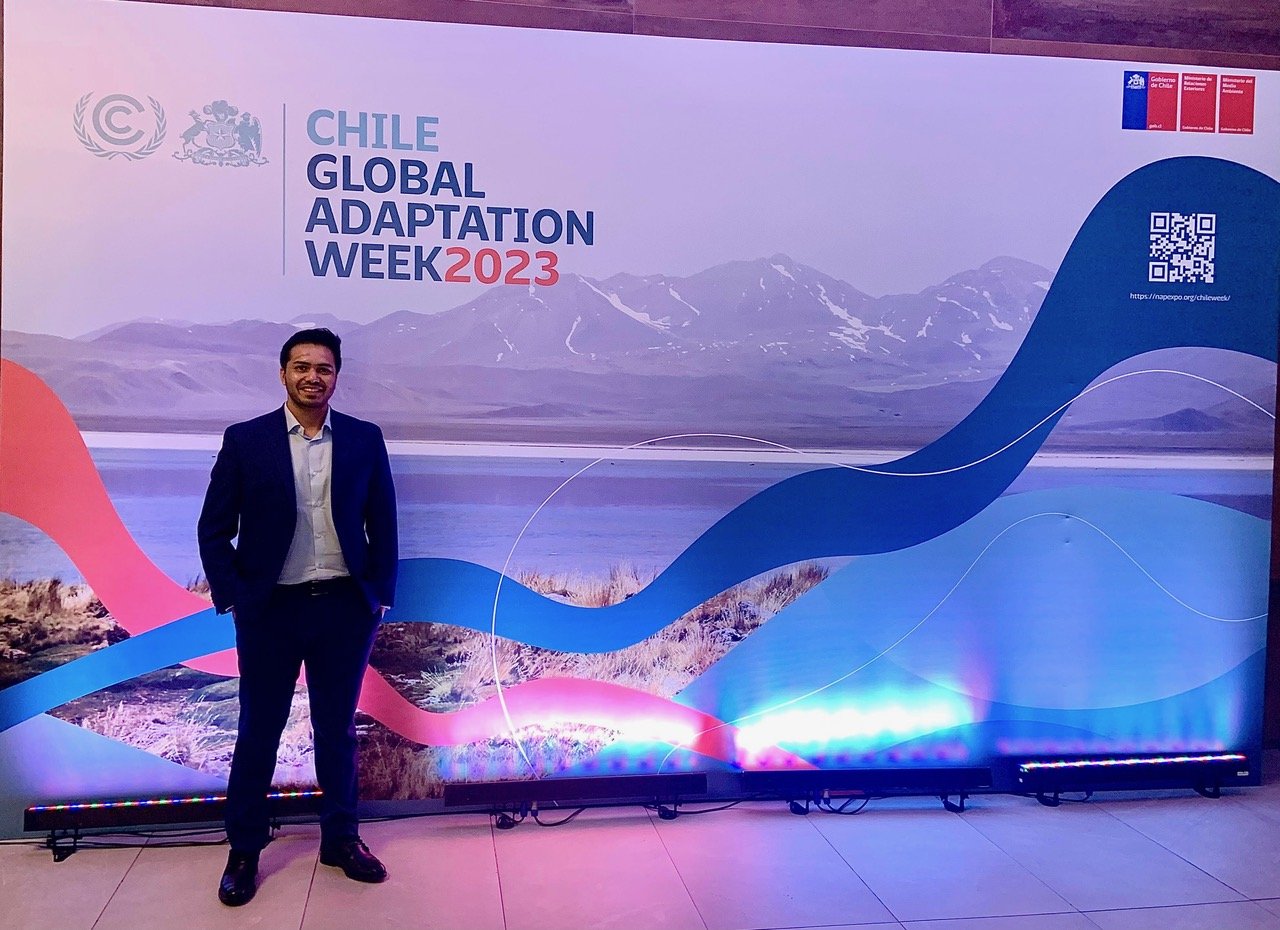Helping the least developed countries with coastal adaptation planning
Joy Deep Chakrabartty, a doctoral candidate in the School of Marine Science and Policy in the College of Earth, Ocean and Environment, is a 2023 John A. Knauss Marine Policy Fellow who was nominated by Delaware Sea Grant (DESG) to receive the fellowship.
As part of the fellowship, Chakrabartty was placed in NOAA’s National Environmental Satellite, Data and Information Service (NESDIS) in their Satellite Oceanography and Climatology Division where he works with the GEO Blue Planet Team.
Chakrabartty recently had the opportunity to travel to Santiago, Chile where he attended the 2023 NAP Expo organized by the United Nationals Framework Convention on Climate Change (UNFCCC). The NAP Expo is an annual outreach event organized by the Least Developed Countries Expert Group (LEG) under the UNFCCC, in collaboration with various bodies and organizations, to promote exchange of experiences and foster partnerships between a wide range of actors and stakeholders on how to advance National Adaptation Plans (NAPs).
As part of the conference, the United Nations invites intergovernmental agencies to showcase their technologies that can help what the U.N. refers to as the Least Developed Countries (LDCs). Chakrabartty was part of the GEO Delegation team that attended the conference and represented NOAA. He gave two separate presentations and participated in one panel discussion.
“Our office in NOAA (GEO blue planet) is preparing a Coastal Adaptation Plan guideline for LDCs on a request from UNFCCC,” said Chakrabartty. “The process began from the 2022 NAP Expo and at this year's event, I presented the outline for the guideline.”
In the first presentation, Chakrabartty presented "Earth Observation in Coastal Adaptation" where he talked about what kind of information can be gathered from Earth Observation systems on the ocean and how NOAA, NASA and other partners use this information for developing coastal adaptation tools and how they can help LDCs with these tools.
His second presentation was titled "Towards new Guidance of Coastal Adaptation" and he talked about why coastal adaptation is important, why coastal adaptation should be focused and the analysis on coastal components of existing NAPs, covering where the LDCs are doing well and where they should be focusing more of their attention.
“At the end, I talked about the outline of the Coastal adaptation plan and where we can help LDC in various capacities,” said Chakrabartty.
After the presentation, there was a Panel discussion where Chakrabartty and his colleagues from the World Meteorological Organization, the United States Geological Survey and Digital Earth Africa talked with representatives from LDCs who discussed the barriers of resources for adaptation, where they are lacking in coastal adaptation, and how the organizations can help them in different fronts.
Article by Adam Thomas

